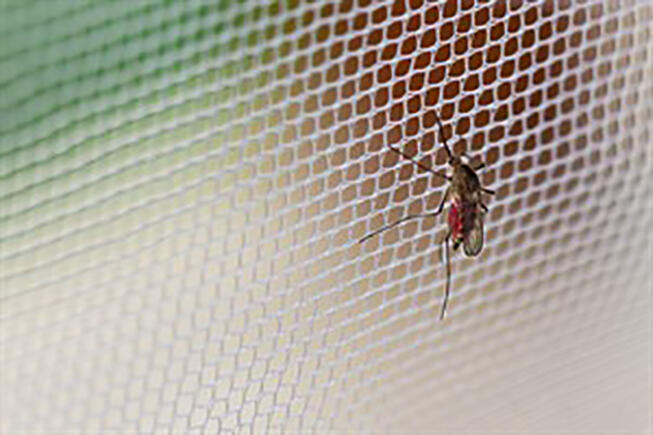
LSTM’s seminar series continued this week with a talk by LSTM’s Professor Hilary Ranson, Head of the Department of Vector Biology. Her presentation, entitled: Will pyrethroid resistance derail malaria control? And was introduced by Dr Mark Paine.
Professor Ranson began by giving a brief history of vector control in relation to malaria. Since 2003 malaria cases began to decline, in the most part this was due to scale up of vector control via indoor residual spraying (IRS) with insecticides and the mass distribution of long lasting insecticide treated bed nets (LLIN). She illustrated the importance of continuing with such control programmes giving a number of examples where cases had started to increase rapidly as intervention programmes had concluded, proving that in many areas we are a long way from elimination.
Originally being derived from chrysanthemums, synthetic production of pyrethroids began in the 1970s and they have been widely used since then. Being safe for humans it is the only insecticide class allowed to be used on bed nets, and it is also very fact acting on the mosquito. While other insecticides are available for IRS 30 out of 48 IRS programmes continue to use pyrethroids. This combined with the fact that this insecticide class is also used in many other products, available industrially and personally, has selected for resistance in malaria vectors.
When looking at the question of if they are failing, Professor Ranson pointed out that while our measurement tools are appropriate to assess the distribution of resistance in different mosquito populations, they are not as good at measuring the strength or impact of that resistance. More work needs to be done to see how insecticide resistance may impacts fertility or life span and to relate mosquito survival to malaria transmission. She also explained that there is also a knowledge gap in relation to behavioural adaptations in the mosquito as well as biological ones.
When addressing the issue of what can be done in the face of increasing resistance, Professor Ranson highlighted the work taking place in LSTM: The work within AvecNet and other research programmes is addressing knowledge gaps in the causes and consequences of resistance and developing tools to evaluate strategies to mitigate resistance; the work at LITE in testing new insecticide products for commercial partners; providing advocacy and technical advice to IVCC for resistance management strategies and advocating for the need for novel insecticides and offering technical assistance through work with the Global Fund and other donors about which products to deploy where.
After talking through some trials currently taking place examining the efficacy of combining pyrethroids with a sterilisation agent on bed nets, Professor Ranson summarised by calling for effective stewardship of new tools and products. She pointed out that maintaining gains in malaria control requires effective insecticides, and that further work needs to be undertaken to ensure that when new insecticides and tools become available we have to know how best to deploy them in order to minimise the impact of resistance.